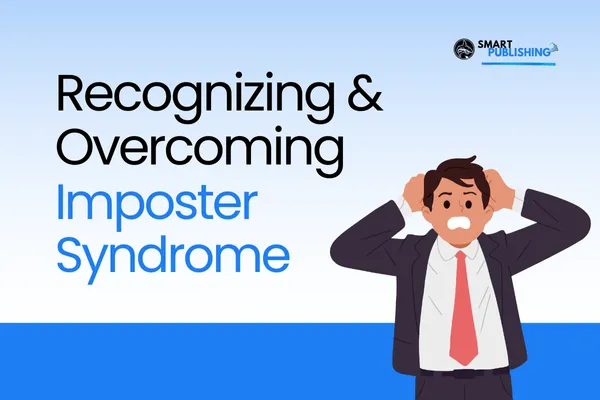
Recognizing and Overcoming Imposter Syndrome as an Author
Recognizing and Overcoming Imposter Syndrome as an Author
📘 Smart Publishing Impact Series – Episode 32
Let’s talk about something that shows up more often than most authors realize: imposter syndrome.
It sneaks in quietly, whispering things like:
“Who am I to write a book?”
“What if nobody cares?”
“What if they read it—and hate it?”
Sound familiar? If so, you’re not alone. I see imposter syndrome show up with almost every author I work with. The good news? You can recognize it, work through it, and publish your book anyway.
What Is Imposter Syndrome, Really?
Imposter syndrome is that nagging feeling that you’re not enough—not smart enough, not experienced enough, not talented enough—to do the thing you’ve set out to do.
At its root, it’s actually a defense mechanism. Your mind tries to protect you from rejection by convincing you not to put yourself out there in the first place. But here’s the catch: if you let it win, you also rob yourself (and your readers) of the chance to succeed, connect, and make an impact.
5 Ways Imposter Syndrome Shows Up in Authors
1️⃣ Obsessive self-editing.
Reworking the same chapter over and over to avoid moving forward.
2️⃣ Scrapping your book at the finish line.
Convincing yourself your draft isn’t good enough and starting over.
3️⃣ “Losing focus” halfway through.
Even with a clear chapter map, suddenly claiming you don’t know where your book is going.
4️⃣ Endless feedback loops.
Asking for opinion after opinion, getting conflicting advice, and stalling.
5️⃣ Never satisfied with your cover.
Rejecting every design—even when you can’t explain what you want—because launching feels too final.
And of course, the biggest one: never starting at all. Telling yourself you don’t have the time or the right moment to begin.
How to Overcome Imposter Syndrome
The key is simple: shift your focus from yourself to your mission.
When you stop worrying about how you’ll be judged and start focusing on the people who need your book, everything changes.
Think about:
Who will your book help?
What problems does it solve?
What pain can it ease—or what hope can it bring?
When your headspace fills with mission instead of doubt, procrastination turns into urgency. You’ll stop asking, “What if they don’t like it?” and start saying, “I need to get this out because someone out there is waiting for it.”
Final Word
Imposter syndrome doesn’t disappear—you act in spite of it. That’s what successful authors do.
Don’t let perfectionism, procrastination, or fear keep you from finishing your story. Your readers need your words. Your book matters.
So keep writing your story—because the world needs your voice.
—Renee
